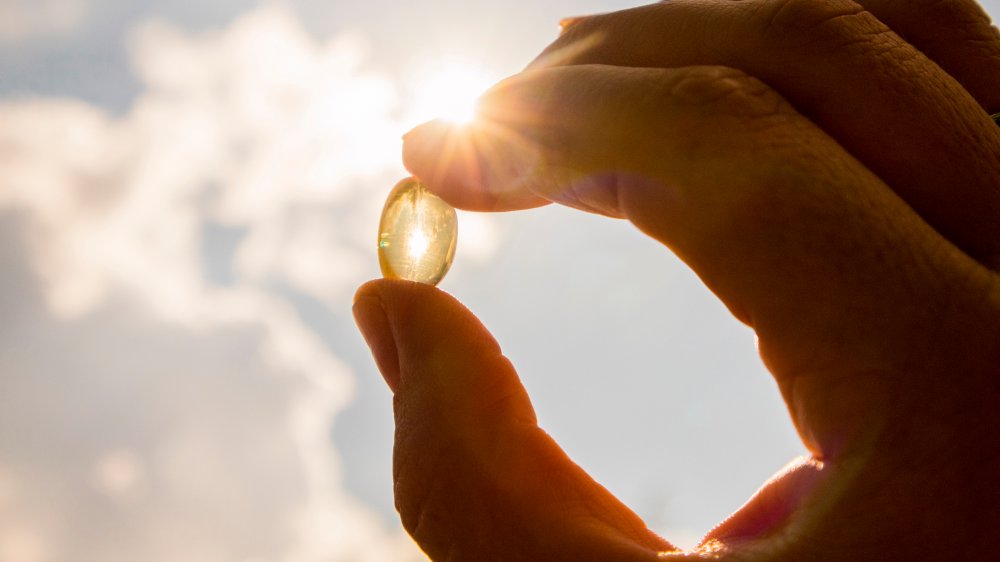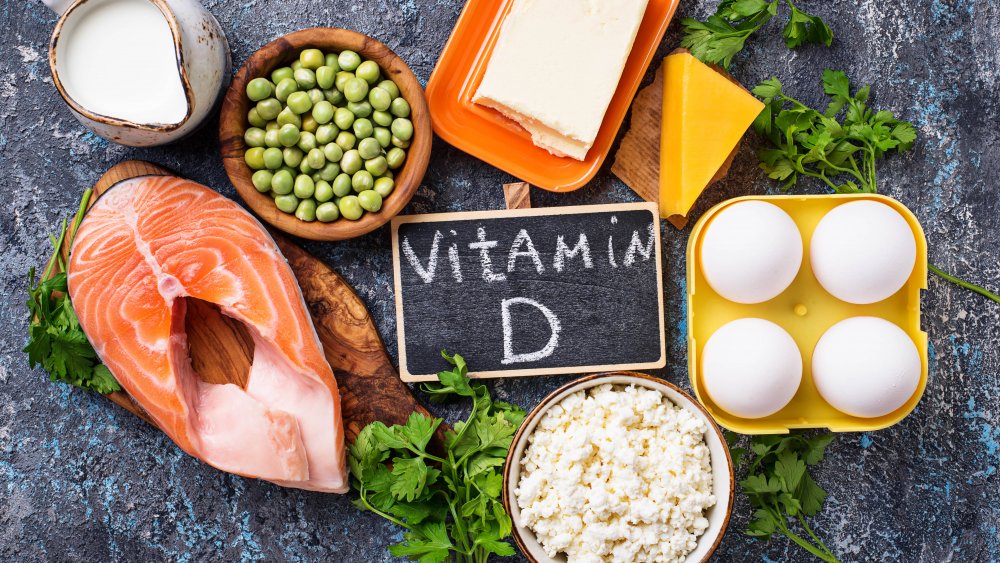This Vitamin May Lower Your Risk Of COVID-19 Infection
With the end of summer and the gradual loss of daylight, you may be tempted to stock up on vitamin D supplements. Known as the "sunshine vitamin" because our bodies produce it in response to sunlight, ensuring you have adequate levels of this important vitamin could also be the key to staving off COVID-19 this fall, according to a new study from the University of Chicago Medicine.
"Vitamin D is important to the function of the immune system and vitamin D supplements have previously been shown to lower the risk of viral respiratory tract infections," says lead study author David Meltzer, M.D., Ph.D., Chief of Hospital Medicine at UChicago Medicine. "Our statistical analysis suggests this may be true for the COVID-19 infection."
The study looked at 489 patients tested for COVID-19. Those with a vitamin D deficiency were nearly twice as likely to receive positive results when compared with patients with sufficient levels. The findings were bolstered by another recent study of 190,000 blood samples published in PLOS One, which linked deficient levels of vitamin D with a 54 percent higher chance of testing positive for coronavirus (via Boston Herald).
How to make sure you're getting enough vitamin D
People who have darker skin or who are over the age of 50 have a more difficult time converting sunshine into vitamin D (via Cleveland Clinic), and are therefore more likely to have a deficiency. People who are homebound, such as nursing home patients, or people who are obese, also tend to have less vitamin D circulating in their systems. Not surprisingly, all of these goups are considered to be at a higher risk for COVID-19 (via The New York Times).
To make sure you're getting enough D, experts recommend eating foods rich in the vitamin such as salmon, tuna, eggs, fortified juice, and fortified dairy. Adding these to your diet also has the bonus of fighting off osteoporosis, because vitamin D makes it easier for your body to absorb bone-strengthening calcium. As for the right amount to take for a supplement, it's likely you won't need more than 600 to 800 IU a day. However, JoAnn Manson, M.D., the Michael and Lee Bell Professor of Women's Health at Harvard Medical School, recommends consulting with your doctor. "Many people are taking high-dose supplements on their own and their doctors may not even be aware of it," she says (via Harvard Women's Health Watch). "More is not necessarily better."


